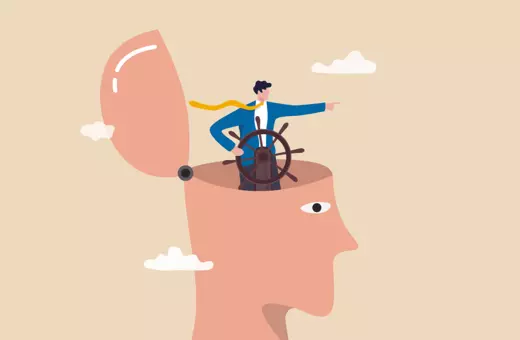Talk of a loneliness epidemic has pathologized time spent outside of social interactions. In doing so, we have forgotten about the importance and benefits of solitude. Dr Netta Weinstein calls for a new understanding of solitude as different from loneliness, and its importance to health and creativity.
We tend to pathologize solitude. It’s easy to do, because we often confuse the idea of ‘solitude’ with that of ‘loneliness’. These conflations are not new. English speakers have, in the past, used both words, ‘loneliness’ and ‘solitude’ interchangeably. Still, in many languages around the world there is no word for (positive, or even neutral) ‘solitude’ — just being alone — that doesn’t also mean ‘loneliness’, the feeling that we don’t have enough love or care.
We hear of a “loneliness epidemic” and the connection between social isolation with degenerative diseases. We hear about ‘loners’, ‘hermits’, ‘isolates’, people who have an unusual and often unhealthy relationship with solitude. Our imagery and language are set up to make us fear and distrust solitude. Being alone is supposed to hurt, and never be something desirable. But that conflation between solitude and loneliness is distorting the experience of being alone with ourselves.
Whether or not we avoid it, we are all very familiar with solitude. Nearly all of us experience solitude every day. We might be alone for only 15 minutes in one go, or maybe we’re alone all day. Our research suggests that solitude can take many forms. You might find yourself in solitude walking alone in green meadows with nobody around and nothing but your thoughts for company. Or you might be in solitude while sitting on the bus surrounded by strangers, thoughts turned inwards. Solitude can even happen when we’re alone with loved ones, each person in their own personal space, contemplating their own thoughts.
___
Curious minds especially love solitude; it’s a playground for open and creative thoughts.
___
What do all those forms of chosen solitude have in common? The answer is that when in solitude, regardless of what type, our most important relationship is with ourselves. Instead of talking with others, our conversation is turned inwards, listening to our own thoughts. Freed from attending to what other people are saying to us or how they want us to behave, we can be more attuned to how we, ourselves, feel and think. In our research, we find that curious minds especially love solitude; it’s a playground for open and creative thoughts. In our desire to never feel alone we can forget we can be our own (great) company.
Herein also lies the potential difficulty of solitude. Left with our own thoughts, it’s easy to ruminate about things that have gone wrong and make us unhappy. Given we’re social creatures, we ruminate if we feel isolated or rejected and as a result we feel lonely. We can be good, loving, kind and fun friends to ourselves, but we can also be judgmental, unkind, or disinterested. Imagine friends who are being unkind in this way. They can leave us feeling pretty awful. But talking to a great friend leaves us feeling wonderful. You can think of our relationship with ourselves as a form of friendship – it could be positive or destructive.






















Join the conversation